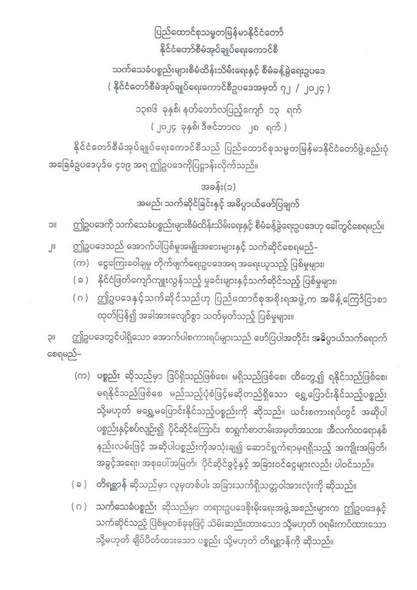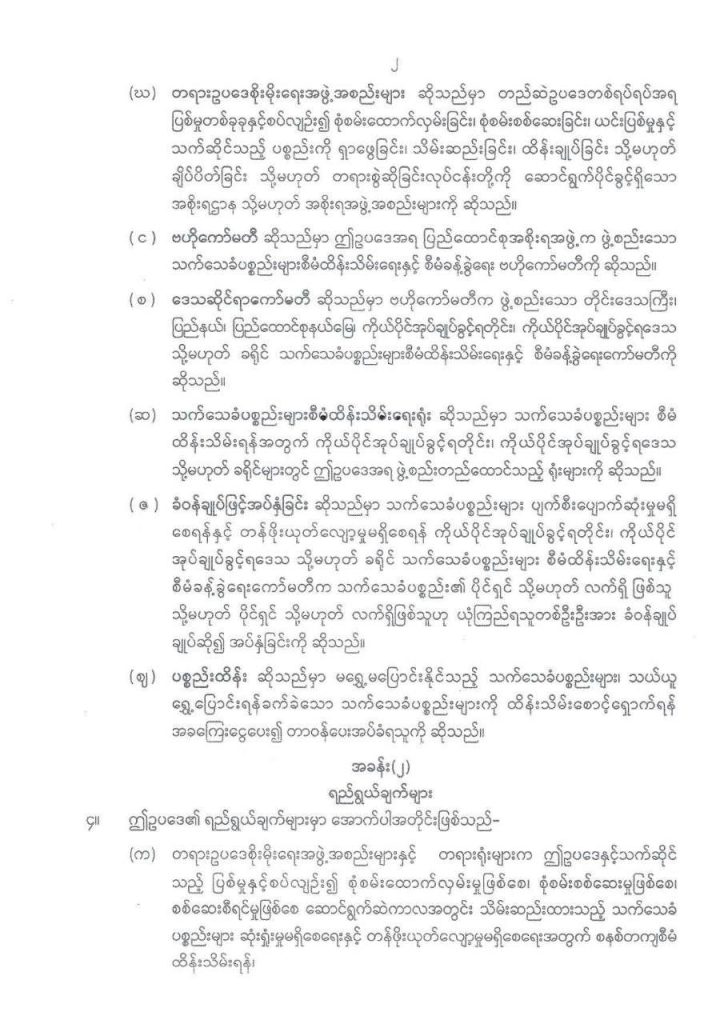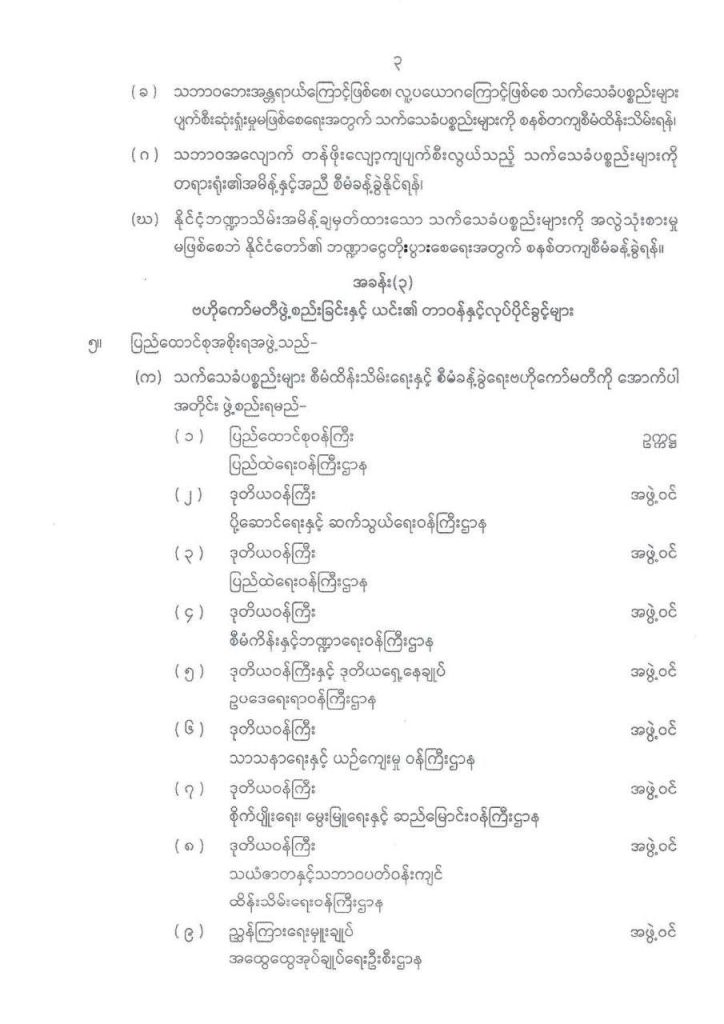The State Administration Council issued an announcement dated December 28, 2024, that the law on the management and preservation of evidence has been enacted.

The law provides it shall apply to offenses punishable under the Anti-Money Laundering Act, offenses related to transnational crimes, and offences specified from time to time by the Union Government through issuing a notification that the offences are related to the law.

The Union Government has to form a central committee for management and preservation of evidence, and the central committee shall consist of a total of 14 persons, including the Union Minister of the Ministry of Home Affairs acted as the chairman, the law states.
It is seen in the provisions of the law that the central committee can be reorganized according to the requirements if necessary, and the responsibilities and authorities of the central committee, including making necessary policies, are also stipulated as well.

The central committee shall establish regional committees, such as region or state evidence management and preservation committees, and the regional committees shall consist of a total of 13 individuals including the minister of security and border affairs of the region or state government concerned acted as the chairperson, the law states.
It provides that region or state and Union Territory evidence management and preservation committees shall be reorganized in accordance with local requirements if necessary and that responsibilities and authorities including implementation of policies set by the central committee.
Furthermore, the central committee shall also establish a Union Territory evidence management and preservation committee consisting of 13 individuals, including the Nay Pyi Taw Council member (1) acted as the chairman, it states.
In addition, the law provides the self-administered division or self-administered zone or district evidence management and preservation committee shall be formed by the self-administered division or self-administered zone leadership team with 10 persons including one executive member of leadership team or the relevant district administrator acted as the chairman and their duties and authorities as well.
The Ministry of Home Affairs, in consultation with relevant government departments or government organizations, shall establish evidence management and preservation offices in self-administered divisions or self-administered zones or districts and shall appoint a police officer not lower Police Major in rank as the officer to supervise the office, the law states.
It also provides that law enforcement organizations must act in accordance with the central committee’s guidelines when handing over seized evidence to the evidence management and preservation office with respect to narcotics, and psychotropic substances, controlled chemical substances, other chemical substances and weapons and ammunition or explosives.
Regarding the proceeds from the sale of movable evidence held by the evidence management and preservation office, the region or state evidence management and preservation committee shall transfer the proceeds to the relevant region or state fund, and the Union Territory evidence management and reservation committee shall transfer the proceeds to the Union Fund, the law states.
The self-administered division or self-administered zone or district evidence management and reservation committee shall, if it is found or receives information that evidence in custody or under warrant has been damaged or lost, form an investigation team in accordance with the rules and regulations to investigate the cause of the damage or loss, and shall keep all the matters investigated confidential respectively.
As for the prohibitions, the law provides that no person responsible for the custody of evidence or custodian or person, who accepts evidence under a bond, shall exchange, forge, misuse, or sell evidence nor shall any evidence under the management and reservation of the regional committee be stolen or destroyed.
The offences and penalties are also provided in the law.They say that anyone who is responsible for the custody of evidence or custodian or person who accepts it under a bond, if convicted of exchanging, forging, misusing, or selling evidence, shall be sentenced to a minimum of three years to a maximum of five years imprisonment plus a fine of at least 50 million kyats to a maximum of 100 million kyats.
Any person responsible for the management and reservation of evidence, who fails to comply with any provision prescribed in the by-laws, rules, regulations, notifications, orders, directives and procedures issued under the law, shall be liable to an imprisonment not exceeding three years or to a fine of minimum 10 million kyats to maximum five hundred thousand kyats or to both.
The law states that anyone convicted of stealing or destroying evidence under the management and reservation of the regional committee shall be sentenced to a minimum of five years to a maximum of seven years imprisonment, and a fine of minimum five 50 million kyats to a maximum of 100 million kyat.
Moreover, it also states that if is a person convicted of aiding and abetting, conspiring and attempting to commit a crime, he or she shall be sentenced to the penalty prescribed for that offence in the law, and if the person convicted of committing another crime under the law, he or she shall be sentenced to the maximum penalty prescribed for that offence.
Regardless of what is prescribed in any existing law, any offence related to the law shall be prosecuted only in accordance with the law, and the act of managing evidence in cases related to the law shall be carried out only in accordance with the law regardless of what is prescribed in any existing law.





